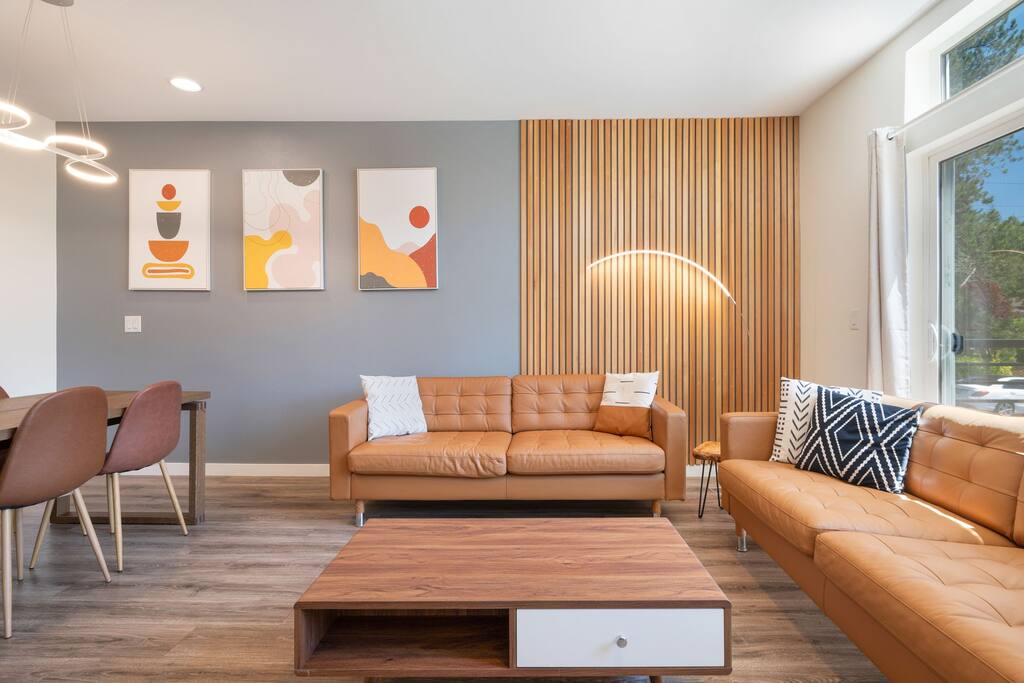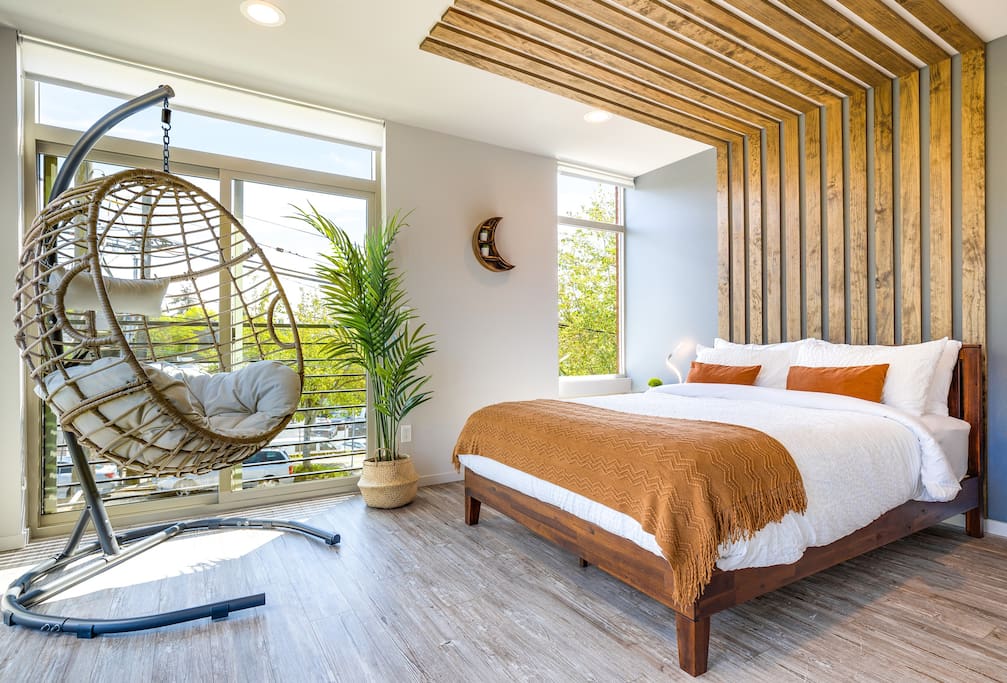





What are the cost of selling?
How much is staging in Vegas?
How much can I expect to pay in transfer tax?
In Las Vegas, the transfer tax rate for real property is structured differently than in San Francisco. Here’s a summary of the transfer tax rates applicable in Clark County, which includes Las Vegas:
- Sales Price of $0 to $1,000,000: $2.55 for each $500 or portion thereof
- Sales Price of $1,000,001 to $5,000,000: $3.00 for each $500 or portion thereof
- Sales Price of $5,000,001 to $10,000,000: $3.50 for each $500 or portion thereof
- Sales Price over $10,000,000: $4.00 for each $500 or portion thereof
It’s important to note that while there is a base transfer tax, there may also be additional local taxes or fees applicable, so it’s advisable to consult with a local real estate professional or tax advisor for the most accurate and up-to-date information.
How hard is it to condo convert my TIC?
In Las Vegas, the conversion of Tenancy in Common (TIC) properties to condominiums is governed by different regulations than those in San Francisco. Here’s a breakdown of the current state of TIC conversion in Las Vegas:
As of now, not all TIC properties have the legal option for condo conversion. Generally, condo conversions can occur under specific conditions, including the following:
-
Unit Eligibility: Buildings with two residential units may qualify for conversion if both units are owner-occupied by separate owners and have no history of evictions involving protected tenants. Buildings with three or more units typically do not qualify for conversion under current regulations.
-
Conversion Process: For qualifying two-unit buildings, there is an exemption from the conversion lottery if both units are occupied for at least one year by separate (unmarried) individuals who each hold a minimum of a 25% ownership interest in the property throughout the entire occupancy period.
-
Application Requirements: Owners of qualifying buildings must submit an application to the City of Las Vegas. This application includes several critical components:
- Inspection: Before applying for conversion, an inspection must be requested through the City, accompanied by the required fee. The inspection receipt is part of the application package, but it is not necessary to complete the inspection before submitting the application.
- Survey: A survey or “condominium map” prepared by a licensed land surveyor is required, detailing the property boundaries and building footprint. This process typically takes about 3-6 weeks.
- Occupancy Proof: Owners or tenants must provide a sworn statement proving occupancy. Owners must also demonstrate eligibility for a homeowner’s property tax exemption.
-
Conversion Fees and Timeline: The conversion process usually takes around 12 months, and there is a conversion fee of approximately $22,500 per unit, in addition to any required repairs or permits from the City’s building inspection.
It’s essential to consult with a local real estate attorney or professional for the most accurate and current information regarding condo conversion regulations in Las Vegas, as local laws and procedures may change.
What happens I move out of the city or state during my sale?
What improvement items require a permit
The general rule in Las Vegas is that any structural changes (such as moving walls, altering floor plans, or modifying the building envelope) or updates to major systems (like plumbing or electrical work) require a permit. For bathrooms, if you remove tile, you’ll need to obtain a permit. Kitchen remodels that involve installing new cabinets also necessitate a permit. Similarly, permits are required for new roofs, new water heaters, and new windows.
On the other hand, cosmetic improvements typically do not require a permit. This includes replacing flooring, countertops, backsplashes, paint, light fixtures, hardware, appliances, and non-built-in vanities.
I'm worried about underpricing. Can we list to test the market?
I can’t emphasize enough that in the Las Vegas market, homes priced at or above market value tend to stay on the market longer, sell for less than comparable properties, and often require multiple price reductions before they sell. Your best chance of achieving the highest sale price for your home is to sell quickly by pricing it competitively. This strategy attracts multiple interested buyers, which can lead to an offer date and a bidding war.
This trend holds true in the Las Vegas real estate market as well. Proper pricing is crucial; homes that are strategically priced below market value can generate higher interest and competitive offers. Engaging with a knowledgeable real estate professional can provide insights into current market conditions to determine the most effective pricing strategy.
What should my agent pay for?
Your agent is responsible for covering all marketing costs associated with selling your home. This includes, but is not limited to, creating a property-specific website, designing property brochures, producing mailers, arranging professional photography, developing floor plans, and creating videos and 3D walk-throughs. They will also handle online advertising, paid social media promotions, and any placements in publications. Additionally, your agent should cover the costs of food and beverages for open houses and broker tours.
FAQs
What are the cost of selling?
How much is staging in Vegas?
How much can I expect to pay in transfer tax?
In Las Vegas, the transfer tax rate for real property is structured differently than in San Francisco. Here’s a summary of the transfer tax rates applicable in Clark County, which includes Las Vegas:
- Sales Price of $0 to $1,000,000: $2.55 for each $500 or portion thereof
- Sales Price of $1,000,001 to $5,000,000: $3.00 for each $500 or portion thereof
- Sales Price of $5,000,001 to $10,000,000: $3.50 for each $500 or portion thereof
- Sales Price over $10,000,000: $4.00 for each $500 or portion thereof
It’s important to note that while there is a base transfer tax, there may also be additional local taxes or fees applicable, so it’s advisable to consult with a local real estate professional or tax advisor for the most accurate and up-to-date information.
How hard is it to condo convert my TIC?
In Las Vegas, the conversion of Tenancy in Common (TIC) properties to condominiums is governed by different regulations than those in San Francisco. Here’s a breakdown of the current state of TIC conversion in Las Vegas:
As of now, not all TIC properties have the legal option for condo conversion. Generally, condo conversions can occur under specific conditions, including the following:
-
Unit Eligibility: Buildings with two residential units may qualify for conversion if both units are owner-occupied by separate owners and have no history of evictions involving protected tenants. Buildings with three or more units typically do not qualify for conversion under current regulations.
-
Conversion Process: For qualifying two-unit buildings, there is an exemption from the conversion lottery if both units are occupied for at least one year by separate (unmarried) individuals who each hold a minimum of a 25% ownership interest in the property throughout the entire occupancy period.
-
Application Requirements: Owners of qualifying buildings must submit an application to the City of Las Vegas. This application includes several critical components:
- Inspection: Before applying for conversion, an inspection must be requested through the City, accompanied by the required fee. The inspection receipt is part of the application package, but it is not necessary to complete the inspection before submitting the application.
- Survey: A survey or “condominium map” prepared by a licensed land surveyor is required, detailing the property boundaries and building footprint. This process typically takes about 3-6 weeks.
- Occupancy Proof: Owners or tenants must provide a sworn statement proving occupancy. Owners must also demonstrate eligibility for a homeowner’s property tax exemption.
-
Conversion Fees and Timeline: The conversion process usually takes around 12 months, and there is a conversion fee of approximately $22,500 per unit, in addition to any required repairs or permits from the City’s building inspection.
It’s essential to consult with a local real estate attorney or professional for the most accurate and current information regarding condo conversion regulations in Las Vegas, as local laws and procedures may change.
What happens I move out of the city or state during my sale?
What improvement items require a permit
The general rule in Las Vegas is that any structural changes (such as moving walls, altering floor plans, or modifying the building envelope) or updates to major systems (like plumbing or electrical work) require a permit. For bathrooms, if you remove tile, you’ll need to obtain a permit. Kitchen remodels that involve installing new cabinets also necessitate a permit. Similarly, permits are required for new roofs, new water heaters, and new windows.
On the other hand, cosmetic improvements typically do not require a permit. This includes replacing flooring, countertops, backsplashes, paint, light fixtures, hardware, appliances, and non-built-in vanities.
I'm worried about underpricing. Can we list to test the market?
I can’t emphasize enough that in the Las Vegas market, homes priced at or above market value tend to stay on the market longer, sell for less than comparable properties, and often require multiple price reductions before they sell. Your best chance of achieving the highest sale price for your home is to sell quickly by pricing it competitively. This strategy attracts multiple interested buyers, which can lead to an offer date and a bidding war.
This trend holds true in the Las Vegas real estate market as well. Proper pricing is crucial; homes that are strategically priced below market value can generate higher interest and competitive offers. Engaging with a knowledgeable real estate professional can provide insights into current market conditions to determine the most effective pricing strategy.
What should my agent pay for?
Your agent is responsible for covering all marketing costs associated with selling your home. This includes, but is not limited to, creating a property-specific website, designing property brochures, producing mailers, arranging professional photography, developing floor plans, and creating videos and 3D walk-throughs. They will also handle online advertising, paid social media promotions, and any placements in publications. Additionally, your agent should cover the costs of food and beverages for open houses and broker tours.
FAQs
What are the cost of selling?
How much is staging in Vegas?
How much can I expect to pay in transfer tax?
In Las Vegas, the transfer tax rate for real property is structured differently than in San Francisco. Here’s a summary of the transfer tax rates applicable in Clark County, which includes Las Vegas:
- Sales Price of $0 to $1,000,000: $2.55 for each $500 or portion thereof
- Sales Price of $1,000,001 to $5,000,000: $3.00 for each $500 or portion thereof
- Sales Price of $5,000,001 to $10,000,000: $3.50 for each $500 or portion thereof
- Sales Price over $10,000,000: $4.00 for each $500 or portion thereof
It’s important to note that while there is a base transfer tax, there may also be additional local taxes or fees applicable, so it’s advisable to consult with a local real estate professional or tax advisor for the most accurate and up-to-date information.
How hard is it to condo convert my TIC?
In Las Vegas, the conversion of Tenancy in Common (TIC) properties to condominiums is governed by different regulations than those in San Francisco. Here’s a breakdown of the current state of TIC conversion in Las Vegas:
As of now, not all TIC properties have the legal option for condo conversion. Generally, condo conversions can occur under specific conditions, including the following:
-
Unit Eligibility: Buildings with two residential units may qualify for conversion if both units are owner-occupied by separate owners and have no history of evictions involving protected tenants. Buildings with three or more units typically do not qualify for conversion under current regulations.
-
Conversion Process: For qualifying two-unit buildings, there is an exemption from the conversion lottery if both units are occupied for at least one year by separate (unmarried) individuals who each hold a minimum of a 25% ownership interest in the property throughout the entire occupancy period.
-
Application Requirements: Owners of qualifying buildings must submit an application to the City of Las Vegas. This application includes several critical components:
- Inspection: Before applying for conversion, an inspection must be requested through the City, accompanied by the required fee. The inspection receipt is part of the application package, but it is not necessary to complete the inspection before submitting the application.
- Survey: A survey or “condominium map” prepared by a licensed land surveyor is required, detailing the property boundaries and building footprint. This process typically takes about 3-6 weeks.
- Occupancy Proof: Owners or tenants must provide a sworn statement proving occupancy. Owners must also demonstrate eligibility for a homeowner’s property tax exemption.
-
Conversion Fees and Timeline: The conversion process usually takes around 12 months, and there is a conversion fee of approximately $22,500 per unit, in addition to any required repairs or permits from the City’s building inspection.
It’s essential to consult with a local real estate attorney or professional for the most accurate and current information regarding condo conversion regulations in Las Vegas, as local laws and procedures may change.
What happens I move out of the city or state during my sale?
What improvement items require a permit
The general rule in Las Vegas is that any structural changes (such as moving walls, altering floor plans, or modifying the building envelope) or updates to major systems (like plumbing or electrical work) require a permit. For bathrooms, if you remove tile, you’ll need to obtain a permit. Kitchen remodels that involve installing new cabinets also necessitate a permit. Similarly, permits are required for new roofs, new water heaters, and new windows.
On the other hand, cosmetic improvements typically do not require a permit. This includes replacing flooring, countertops, backsplashes, paint, light fixtures, hardware, appliances, and non-built-in vanities.
I'm worried about underpricing. Can we list to test the market?
I can’t emphasize enough that in the Las Vegas market, homes priced at or above market value tend to stay on the market longer, sell for less than comparable properties, and often require multiple price reductions before they sell. Your best chance of achieving the highest sale price for your home is to sell quickly by pricing it competitively. This strategy attracts multiple interested buyers, which can lead to an offer date and a bidding war.
This trend holds true in the Las Vegas real estate market as well. Proper pricing is crucial; homes that are strategically priced below market value can generate higher interest and competitive offers. Engaging with a knowledgeable real estate professional can provide insights into current market conditions to determine the most effective pricing strategy.
What should my agent pay for?
Your agent is responsible for covering all marketing costs associated with selling your home. This includes, but is not limited to, creating a property-specific website, designing property brochures, producing mailers, arranging professional photography, developing floor plans, and creating videos and 3D walk-throughs. They will also handle online advertising, paid social media promotions, and any placements in publications. Additionally, your agent should cover the costs of food and beverages for open houses and broker tours.
“From the very first moments, it became evident that Leila was not only a highly experienced realtor but also someone we could genuinely rely on. As we progressed through the process, our trust in her continued to grow.”
“Her steady guidance transformed a stressful process into something manageable. I always felt she would provide me with honest advice, which is invaluable when making such a significant decision. Leila is truly a treasure and knows how to advocate fiercely when needed.”
“From the very first moments, it became evident that Leila was not only a highly experienced realtor but also someone we could genuinely rely on. As we progressed through the process, our trust in her continued to grow.”
“Her steady guidance transformed a stressful process into something manageable. I always felt she would provide me with honest advice, which is invaluable when making such a significant decision. Leila is truly a treasure and knows how to advocate fiercely when needed.”
“From the very first moments, it became evident that Leila was not only a highly experienced realtor but also someone we could genuinely rely on. As we progressed through the process, our trust in her continued to grow.”
“Her steady guidance transformed a stressful process into something manageable. I always felt she would provide me with honest advice, which is invaluable when making such a significant decision. Leila is truly a treasure and knows how to advocate fiercely when needed.”


To get started, please take a moment to fill out the information form. This will help me understand your specific situation and tailor our discussion to address your goals effectively. Once I receive your information, I will reach out to you shortly to schedule a complimentary consultation.


To get started, please take a moment to fill out the information form. This will help me understand your specific situation and tailor our discussion to address your goals effectively. Once I receive your information, I will reach out to you shortly to schedule a complimentary consultation.


To get started, please take a moment to fill out the information form. This will help me understand your specific situation and tailor our discussion to address your goals effectively. Once I receive your information, I will reach out to you shortly to schedule a complimentary consultation.
